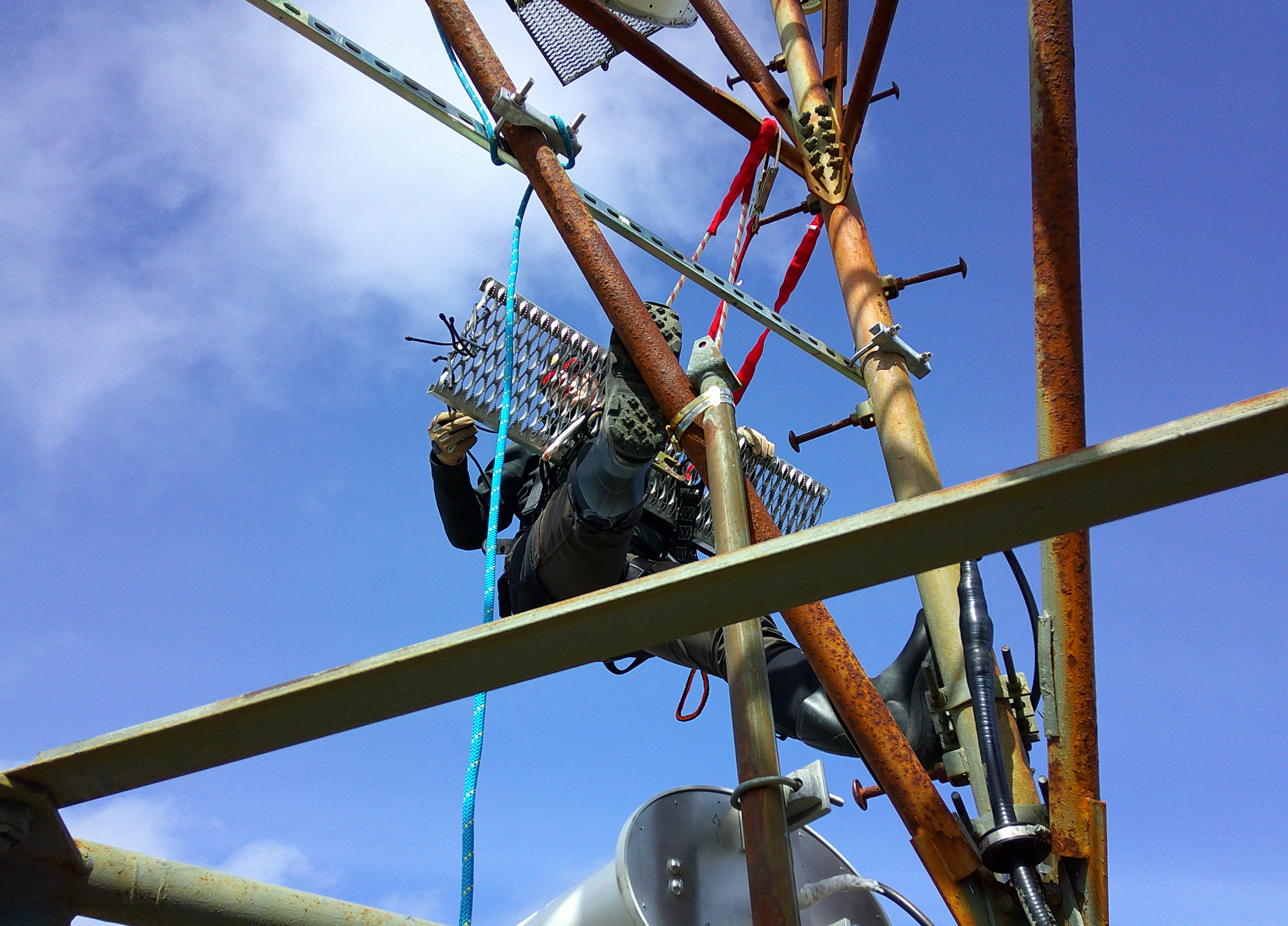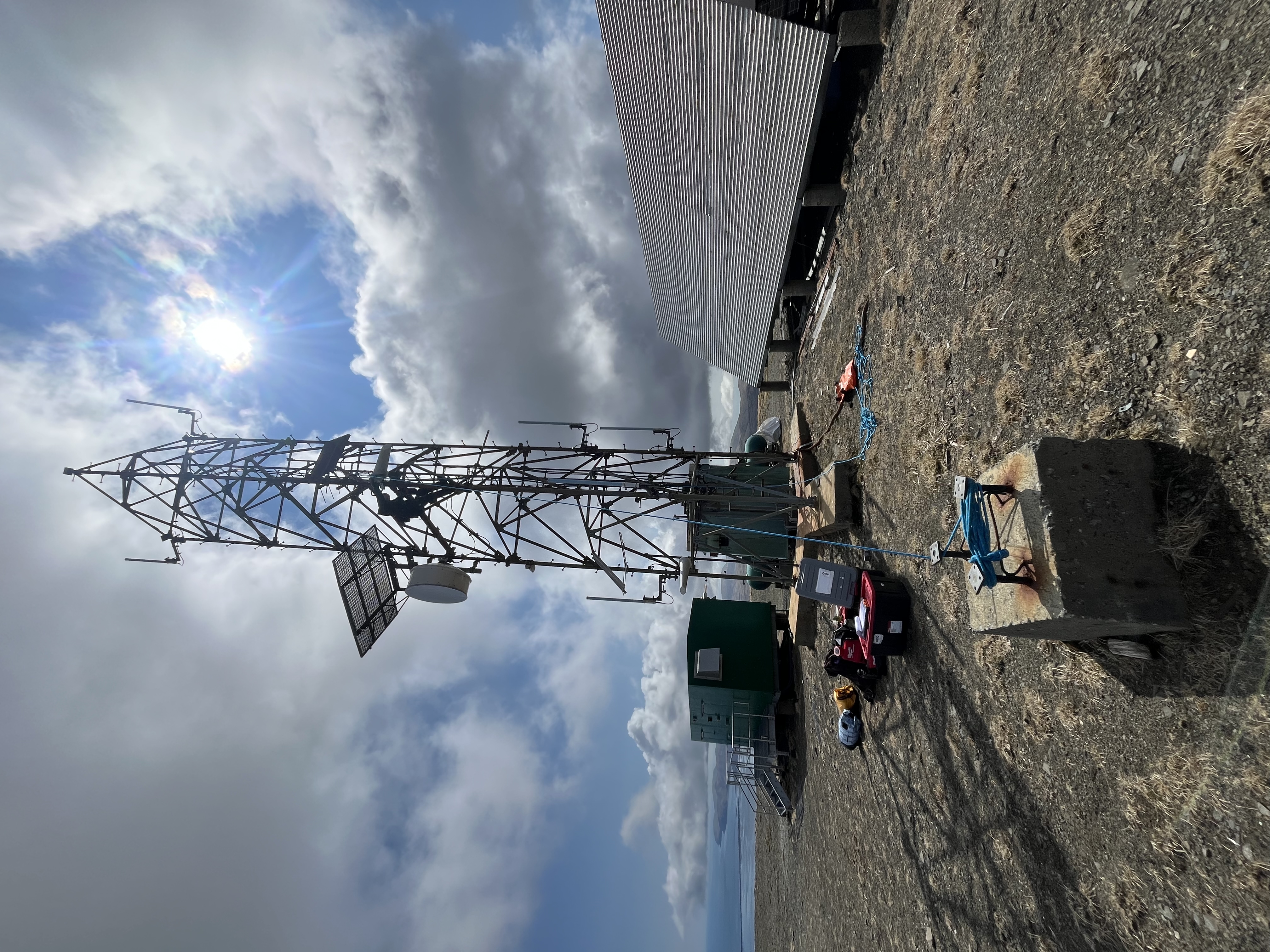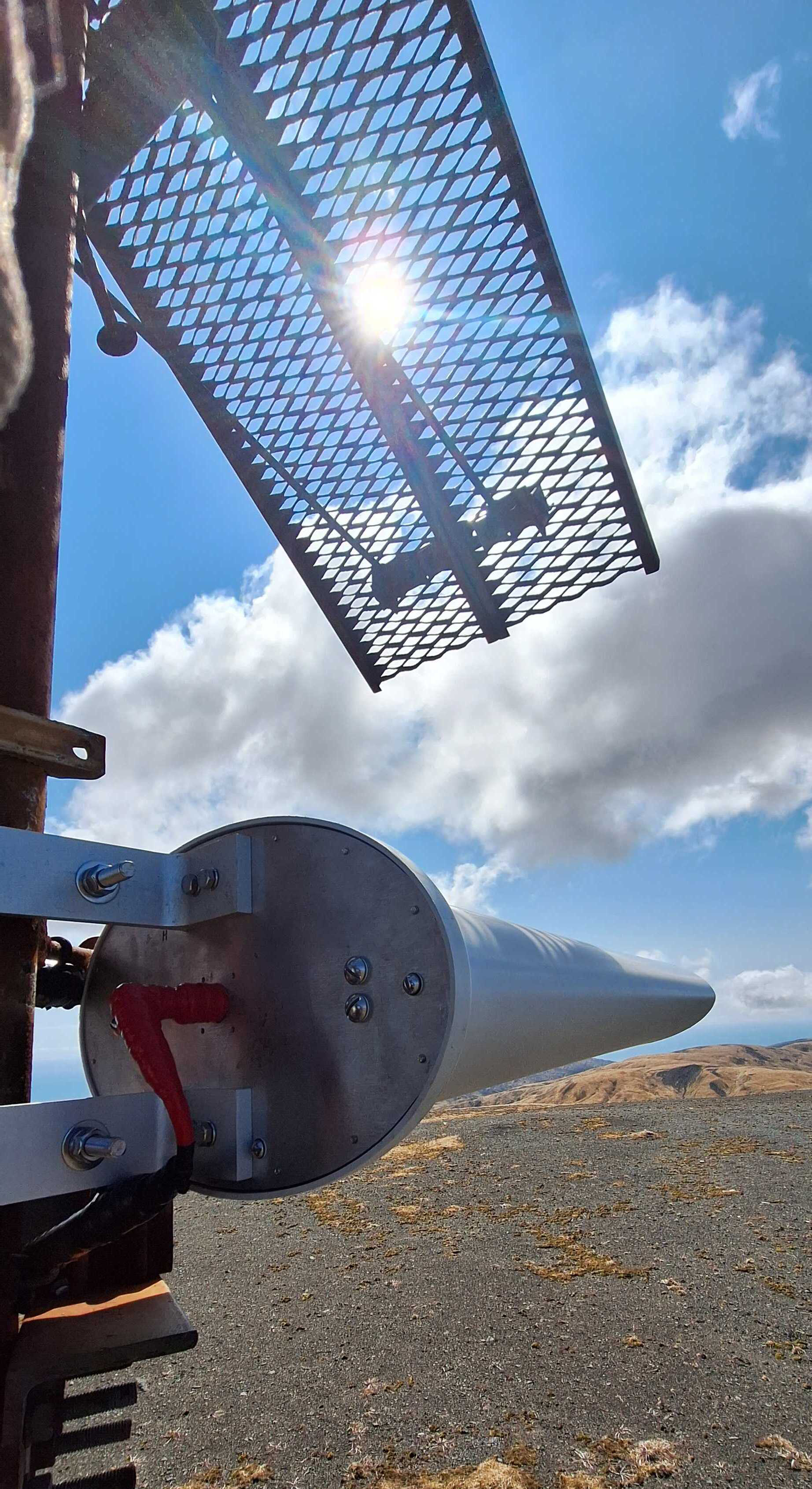




As a field intern fresh out of climbing training, the possibility of getting to use my new knowledge on a real site with a real tower was super exciting. We got to station SII on Sitkinak Island, and it felt like a proving grounds for me as we started to prep for our first round on the tower. Antennas from several organizations, including two of the Earthquake Center’s, are attached to the structure. We planned on putting up a metal grate as an ice shield over the lower of the two radio antennas (Figure 1) because ice from above kept falling onto it, either breaking it or knocking it out of alignment. Our next task was to replace a second radio antenna higher up on the tower, which relays data from our station CHI on Chirikof Island.
I’m not particularly afraid of heights, especially not when rigged up in a safety harness loaded with gear to stop me from falling, but when we set up for work on the second antenna several stories high (Figure 2), I was definitely getting nervous. We had to get that old antenna down and get a new one up within a limited timeframe, and I knew that any gear drop—be it a bolt or a wrench—would cost loads of precious time.
Day one of working on that antenna beat the nerves out of me, though, because come day two, I was ready. I quickly zipped up the tower, working with Carolyn—who provided invaluable help from the ground—to rig up a gear pulley (Figures 3, 4). Without this pulley, we would have needed two sets of hands (or maybe three) to hoist, position, and mount the new antenna. But because of how the pulley was rigged, Carolyn and I hoisted it up without knocking into any other group’s antennas, then anchored the rope to hold the antenna in place while I mounted it and made subtle adjustments to the pointing angle to connect it to the other station. We got that giant thing secured and active! (Figure 5) Success all around!




